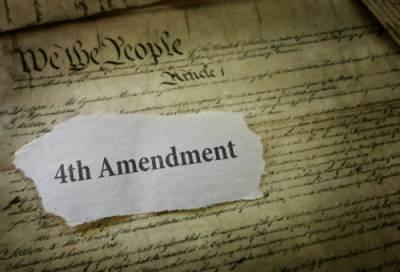The Fourth Amendment and the Protective Sweep Doctrine
 The Fourth Amendment to the U.S. Constitution provides protection from unreasonable searches and seizures by the government. However, it only provides protection from searches and seizures that are deemed unreasonable under the law. One type of search that is not prohibited by the Fourth Amendment is a “protective sweep.”
The Fourth Amendment to the U.S. Constitution provides protection from unreasonable searches and seizures by the government. However, it only provides protection from searches and seizures that are deemed unreasonable under the law. One type of search that is not prohibited by the Fourth Amendment is a “protective sweep.”
What Is a Protective Sweep?
Under the Fourth Amendment, the police cannot just enter a person’s home unless they have a warrant to do so. In order to obtain a warrant, law enforcement must show the court there is probable cause of criminal activity to justify that warrant.
Police are allowed to conduct a search without a warrant under the Protective Sweep Doctrine. Under this doctrine, police can conduct a search after they have arrested someone. The purpose of this search is to provide officers a way to ensure their safety, as well as anyone else on the scene, searching for anyone who may pose a threat.
Protective sweeps often take place when officers arrive at a residence with an arrest warrant, usually needing to enter the residence in order to make that arrest. Once police enter the premises to take the person named in the arrest warrant into custody, they can conduct a sweep if there is reason to believe there is an individual or individuals who could pose a threat. Protective sweeps can also be conducted if the arrest takes place near the suspect’s home or other type of premises.
If, during the protective sweep, officers see evidence of potential criminal activity that is in plain view, this evidence can usually be used in any criminal case that results.
Stringent Limitations
A protective sweep does not allow the police to check whatever rooms or areas of a premise they want. Officers can only look in those areas where a person could be hiding, such as in bedrooms or closets. The sweep itself must be conducted quickly. Once the arrest has been made, officers must leave the premises.
If the court rules that police overstepped the bounds of a protective sweep, any evidence obtained would likely be excluded from the proceedings.
Contact a Cooke County Defense Attorney
If you have been arrested and charged with a crime, it is critical to have a skilled Denton County criminal defense lawyer advocating for you and ensuring your constitutional rights are protected. Call Magaña & Van Dyke at 940-382-1976 to schedule a free consultation and find out how our firm can help.
Sources:
https://www.ojp.gov/ncjrs/virtual-library/abstracts/fourth-amendment-protective-sweep-doctrine-when-does-fourth
https://www.uscourts.gov/about-federal-courts/educational-resources/about-educational-outreach/activity-resources/what-does-0





